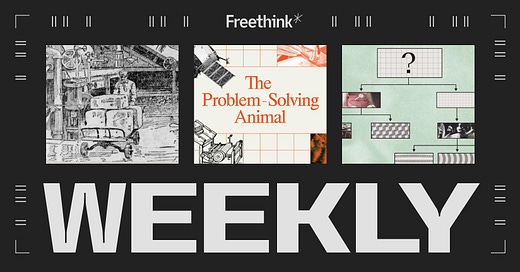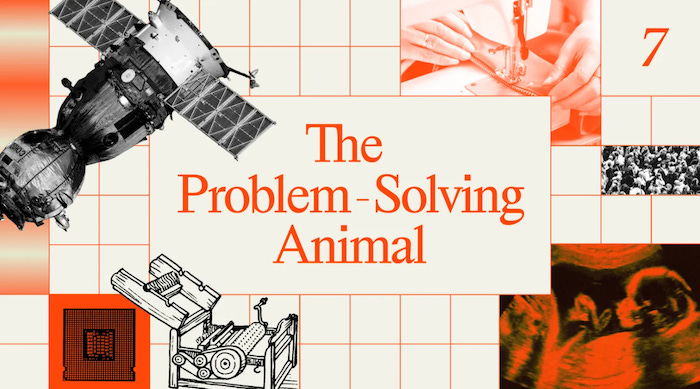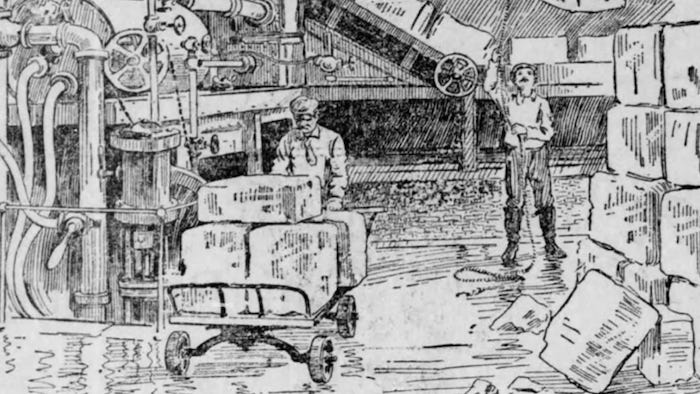🌎 Will we run out of ideas?
Why we aren’t innovating like we used to — and what it might take to stave off stagnation.
Hey Freethinkers,
People love to romanticize innovation. Some genius has a “light bulb moment,” and from that flash of brilliance we get an invention that changes the world.
In reality, innovation is rarely instantaneous — the light bulb itself was the result of incremental advances made by dozens of inventors over most of a century — but people are willing to put in that work because humanity has a problem that can only be solved by something new.
This week, Jason Crawford explored the idea of ideas in his Techno-Humanist Manifesto, arguing that, because we’re always going to have some kind of unmet need or desire, we’re always going to have innovation. The question is whether we can keep up the pace of innovation set in the 20th century.
Also, we’re very excited to announce that we’ll be updating Freethink Weekly to give you more insight into what’s happening behind the scenes at Freethink and why we do what we do. Expect a new look (and a new name) when it next hits your inbox.
Read on,
Kristin
FREETHINK VOICES
It’s far too early to call “peak ideas”
New ideas drive economic growth — we innovate, and those innovations open up new economic opportunities. Between 1870 and 1970, the world innovated at an unprecedented rate — we got everything from the automobile to the electric grid — but over the past 50 years, the pace has slowed to a crawl. In the latest edition of the Techno-Humanist Manifesto, Jason Crawford explores why we aren’t innovating like we used to — and what it might take to stave off stagnation.
FREETHINK FEATURES
The war on artificial ice
by
The way we produce meat today — by raising and slaughtering livestock — is both environmentally harmful and ethically fraught. Lab-grown meat could allow us to keep the meat we know and love without the downsides of traditional production, but instead of embracing this innovation, some states are banning it. In a new installment of
, Louis Anslow explores how the fight over lab-grown meat mirrors an earlier battle against a different disruptive food technology: factory-made ice.ARTIFICIAL INTELLIGENCE
What if you could start civilization over with AI?
by Peter Leyden
Leaders in every major field are currently asking themselves the same question: How can we incorporate AI into what we do? But that’s the wrong question, argues author
. In the latest essay in his “The Great Progression: 2025 to 2050” series, Leyden lays out what everyone should be asking instead.WORTH SHARING
When to quit: A simple framework for life’s toughest decisions
by
In poker, knowing when to fold is just as important as knowing when to hold, but laying down a hand — even a lousy one — can be hard, especially if you’ve already put money in the pot. The same dilemma plays out in careers, relationships, and other facets of life: Quitting something you’ve invested time, money, or emotion into can feel like admitting defeat. In an interview with Big Think, former professional poker player turned decision-making guru
explains why it’s important to know when to walk away — and shares how to get better at identifying that moment.

















Could it be the dumbing down of the population? Students in universities and high schools were targeted. I have met a few who were affected.